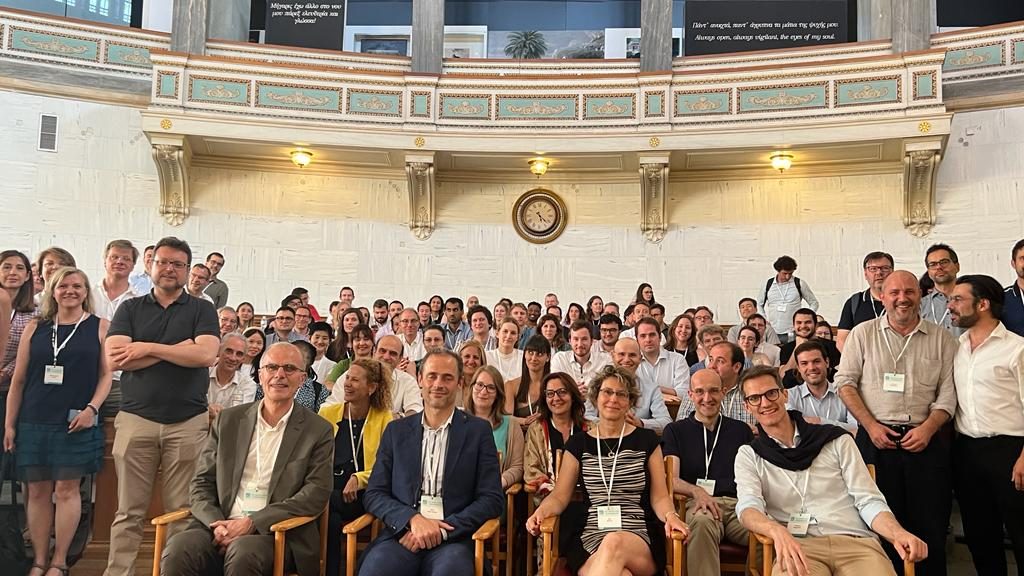
Conference Debriefing (36): ASCOLA 2023
PDF version: Click here
Suggested Citation: Bostoen/Karg/Thepot, DKartJ 2023, 61
ASCOLA is the Academic Society for Competition Law, the global organization that brings together scholars from all over the world once a year. This year, antitrust professors and their future successors met in Athens (Greece) for the three days Olympics of Competition Law Scholarship. Herbert Hovenkamp was there – and so were Friso Bostoen (Tilburg), Madlen Karg (TU Munich) and Florence Thepot (Strasbourg). The three youngish scholars share their insights and photos here in this Conference Debriefing!
Name of event: 18th Annual Conference of ASCOLA (Academic Society for Competition Law) – full programme can be seen here.
Topic: Competition as an Institution and Economic Transformations: A Change of Paradigm?
Place & time: June 29th – July 1st, Athens
Hosts: Alexandra Mikroulea, Emmanouil Mastromanolis (University of Athens Law School); Ioannis Lianos (Hellenic Competition Authority)
Audience: Around 150 participants
Day 1
✍️ Friso Bostoen, Assistant Professor (Tilburg University), ASCOLA five-timer
Now that the worst of covid pandemic is over, the only impediment to hugging long-lost colleagues was the Athens summer heat (‘nothing compared to Aix’, according to survivors of the 2019 conference). Registration provided a beautiful mix of old acquaintances (‘where are you based now?’, ‘congratulations!’) and many new encounters (‘I’ve read your work, so good to finally meet you!’).
With a crowd sensitive to power balances, it quickly became clear some universities were approaching dominance. Utrecht University seemed to have shipped half of its law school to Athens (Anna Gerbrandy, Jasper Sluijs, Paulina Phoa, Zlatina Giorgieva, and a small army of Ph.D. students). Also out in force: the University of Glasgow, with affiliates past (Sandra Marco Colino, Florence Thepot) and present (Magali Eben, Stavros Makis, Konstantinos Stylianou). Other strong showing included EUI (with Linus Hoffmann, Selçukhan Ünekbaş, Velizar Kirilov and Niccolo Galli) and the University of Warsaw (with Maciej Bernatt, Marta Sznaider and Joanna Mazur). Finally, the strong Brazilian presence didn’t go unnoticed!
Midway the first cup of coffee, everyone was herded into the Aula Magna (wait, isn’t that Latin rather than Greek?). The very able students and competition authority interns made sure no cups were snuck inside the room, and—once inside—you understood why you wouldn’t want stains ruining the place.
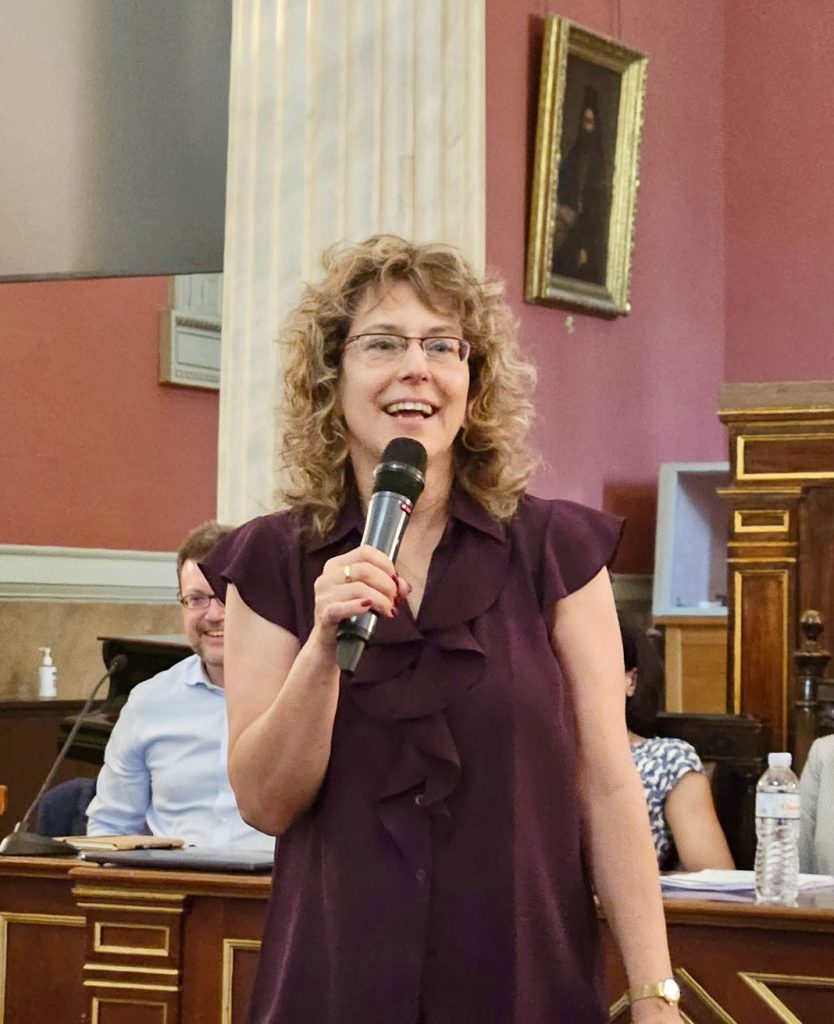
Michal Gal, ASCOLA’s outgoing president, opened the conference with the message that competition law is still sexy. Indeed, having broken into the mainstream over the past years, competition law’s challenge is now to maintain relevance rather than to acquire it. The cutting-edge topics discussed at the conference reassured me that relevance wouldn’t become a problem anytime soon. But I’m getting ahead of myself.
We got an insight in just how difficult it is to organize the ever-growing ASCOLA Conference from one of the hosts, Alexandra Mikroulea. Even in discussion of logistics, she managed to hint at her disagreement with co-host Ioannis Lianos’s views on polycentric competition law. Such friendly jabs would continue during the rest of the conference.
During introductions, we got the first sign that the conference was blessed by the gods. One of the large standing lamps spontaneously started puffing smoke incense. Heathens will argue it was a bug that flew too close to the sun lamp, but us believers know better!
The first plenary session tackled ‘Economic Challenges for Competition’. Ioannis Lianos challenged Olivier Guersent, Tommaso Valletti and Chrysovalantou Milliou with a tough topic: how does competition policy, traditionally a matter of micro-economics, deal with a growing body of macro-economic research that points to a less-than-competitive situation (think of increasing industry concentration and markups, the falling labour share, etc.).
This clash between the surgical tools of competition law and the big picture problems was a constant during the conference. It’s this clash, perhaps more than anything, that explains the rise of the New Brandeis Movement. It also explains the 10+ presentations on sustainability. When the world’s on fire, it just doesn’t suffice to say that competition law can’t do anything (though it surely can’t do everything either).
Innovation is key in competition law—and in its conferences. With a characteristic dose of self-deprecation and sarcasm, incoming ASCOLA President Rupprecht Podszun announced that ‘after all those years, we finally come up with something new’. The idea? Well, we know how much academics love having to cut their papers (right?), why not let them cut their talks? And so the ASCOLA TED Talks were born.
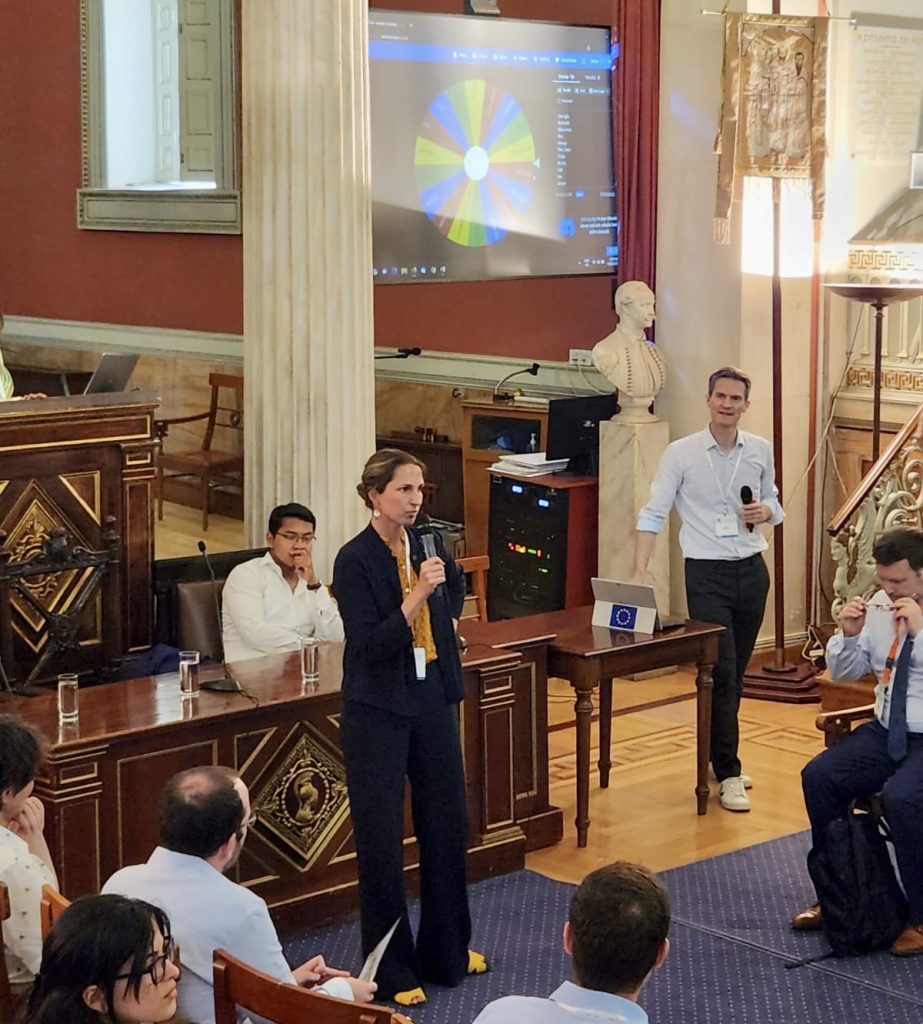
Ninety seconds turned out to be plenty for scholars to put in a memorable performance. Michal Gal herself opened the session with a teaser on synthetic data, and then the wheel of fortune decided the next victim honoree. Elettra Bietti put her finger on the confused conceptions of the competition law–regulation interface, while Thalalolwazi Msutu showed us how public interest plays a role in South-African merger control. When the wheel landed on ‘the joker’, Ioannis pulled in Stavros Makris who—completely unprepared—had to convince us of the ‘effective competitive constraint’ standard. Good luck!
Then, the great dispersal began, as participants spread out over the different venues for the parallel sessions. There was a choice between staying in the same building—enjoying the aircon and having enough time to chug another half cup of coffee—or taking a leisurely walk to one of the other venues. Competition lawyers, who know all about status quo bias from Google Shopping and Android, were not immune from it: the sessions in the main building drew suspiciously large crowds.
Panel 2, on mergers, was worth the walk though, for the panelists as much as the audience. When Christophe Carugati argued that the new Article 22 Guidance could lead to over-enforcement, Tommaso Valletti had to step up: ‘What’s the evidence for that? We’re coming from 0 blocked mergers in the digital space—this is a fig leaf.’ Rupprecht Podszun wasn’t spared either, when he dared call the question of merger referrals ‘exciting’.
OpenAI has changed the world (as anyone who corrects take-home exams/essays can attest…). This also meant that the panel on competition and algorithms, which was old hat last year, now drew enough participants to fill every chair in the room. Peter Picht gave ChatGPT the competition law treatment. Exam question tip: do ChatGPT and its LLM brethren qualify as one of the ‘core gatekeeper services’ in the Digital Markets Act, and if so, which one?
Talking about that conspicuous piece of legislation: we’ve reached ‘peak DMA’. It felt like every other panel concerned the DMA, or at least had a presentation on it—to the mild dissatisfaction of some participants. My humble proposal: let’s create the ASDMALA, to which we ban all DMA papers. This should be uncontroversial: after all, ASCOLA is about competition law, and the DMA is not competition law, right? Hey, that’s what the text itself says!
Another trend, this one much-welcomed, was the increasing discussion of competition law in the Global South. Scholars including Muhammad Rifky Wicaksono, Liat Davis and Vellah Kedogo Kigwiru highlighted the inspiring developments, from Indonesia to Kenya, while also making clear there’s a lot of work to be done. This growth area definitely deserves (even more of) the spotlight in future conferences.
The day ended with a reception on the roof of the Benaki Museum of Greek Culture. There was a lot to celebrate beyond a fruitful first day. For one, it was ASCOLA’s 20th birthday party. In addition, Fabiana di Porto handed out the Best Junior Paper Award. In a strong field, Stavros Makris and Elias Deutscher distinguished themselves with a paper on ‘Merger Control and Sustainability’. Congratulations!
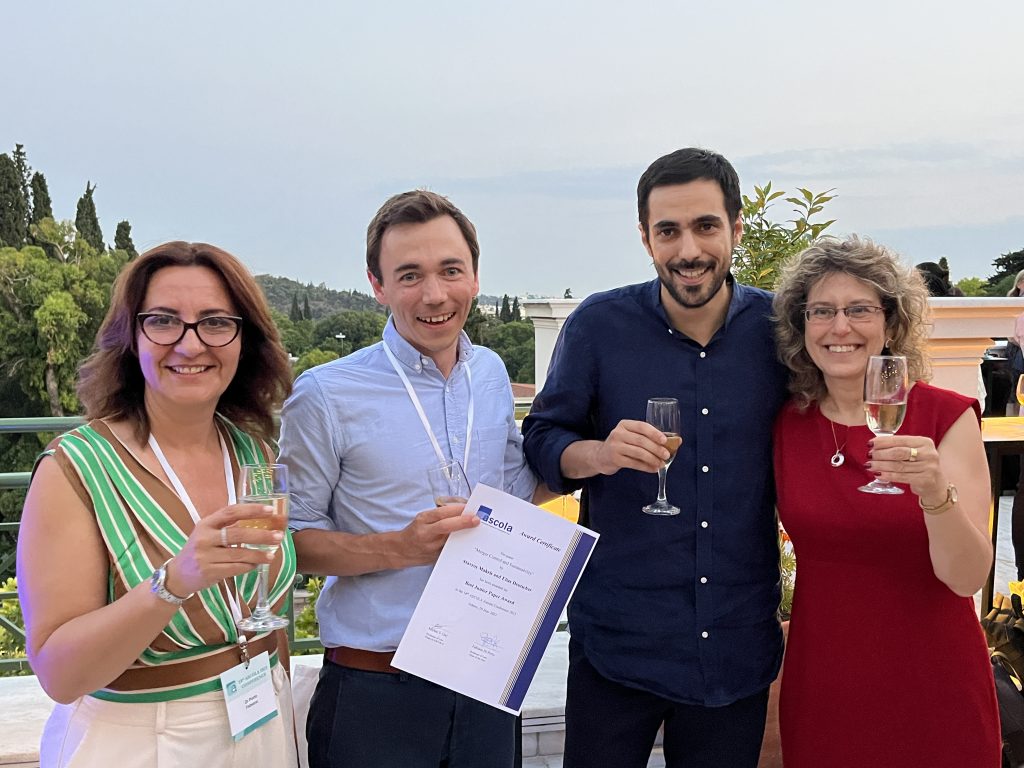
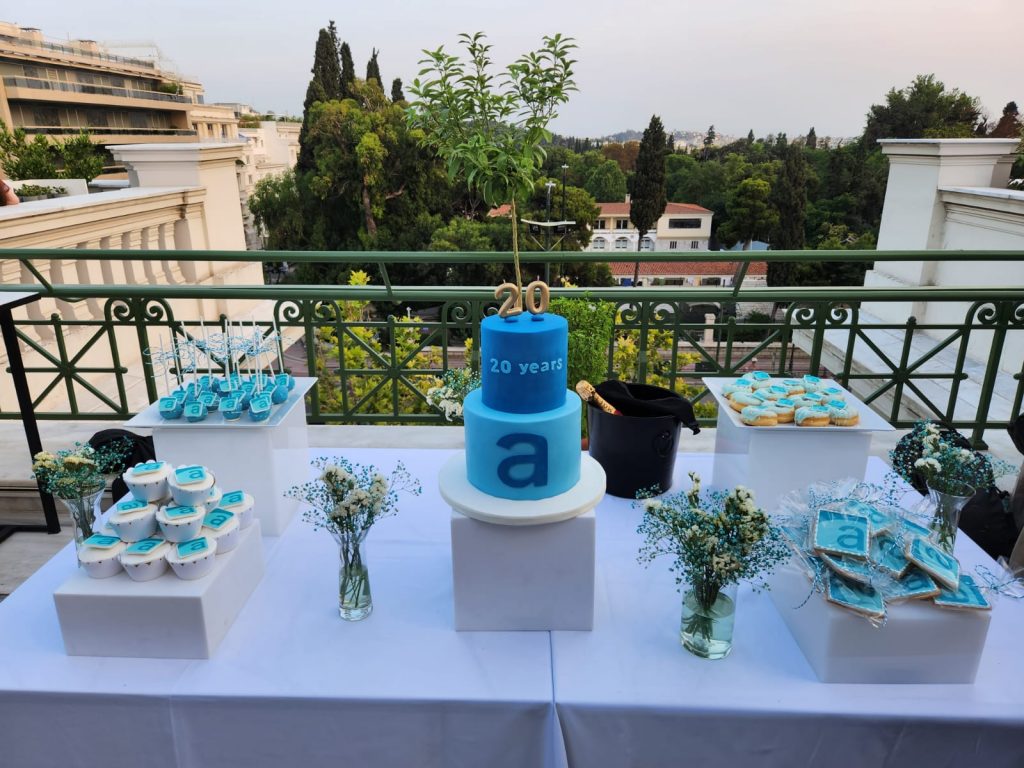
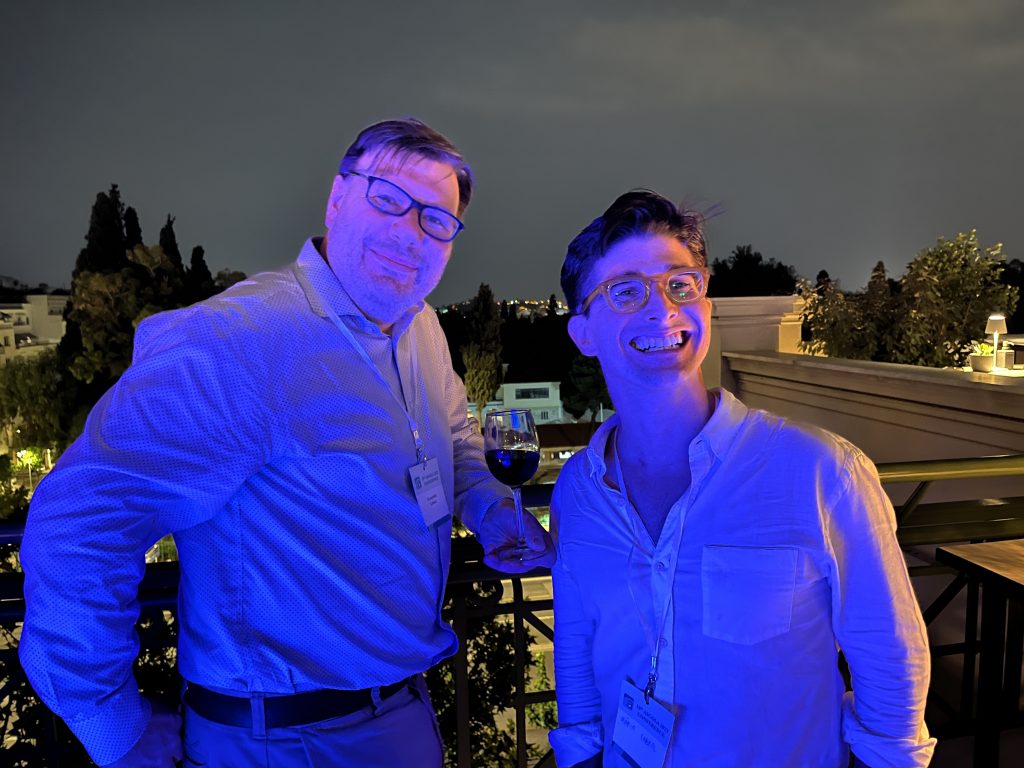
Day 2
✍️ Madlen Karg, Research and Teaching Fellow (Technische Universität München), ASCOLA two-timer
Sleep is for the weak
Since a lot of wisdom, wit and wine was shared at the welcome reception, Day 2 began with a lack of sleep for some participants. Paul Nihoul predicted there would be even less sleep the next day (as former president of ASCOLA and a veteran of many conferences, we had no reason to doubt him). But enough sleep doesn’t make for good (competition law) friendships – as some Greek philosopher probably said at one point. The organizers must have seen this coming and provided enough coffee before the 448 panels of the day started.
Goals, Goals, Goals
The panel choice on Day 2 was hard indeed! Dominant themes were the Goals of Competition Law (5 panels), Global and Comparative Competition Law (3 panels), and Correlation of Competition Law and Sustainability, Consumer and Data Protection (3 panels). Institutions, Pharma, Health, Agriculture, Financial Markets and State Restrictions to Competition were covered as well.
Discipline Diversity or Competition Law and Survival of the Fittest?
This year’s program offered a variety of interdisciplinary work as well. Nope – not talking about economists (we already belong together like Bonnie and Clyde, Batman and Robin, Mario and Luigi, Tom and Jerry, Rupprecht and Justus!). I’m talking about historians like Anselm Küsters. He presented his book, which provides a progressive historical analysis of competition law from the 1950s until the 2000s covering also the influence of ordoliberalism on EU Competition Law. Unique was also the idea presented by Alexey Ivanov and Gergely Boza: they brought together different ecosystems within the scope of digital market competition law by considering it from an ecological perspective, suggesting that online and real-life ecosystems might have similarities.
The Dean himself
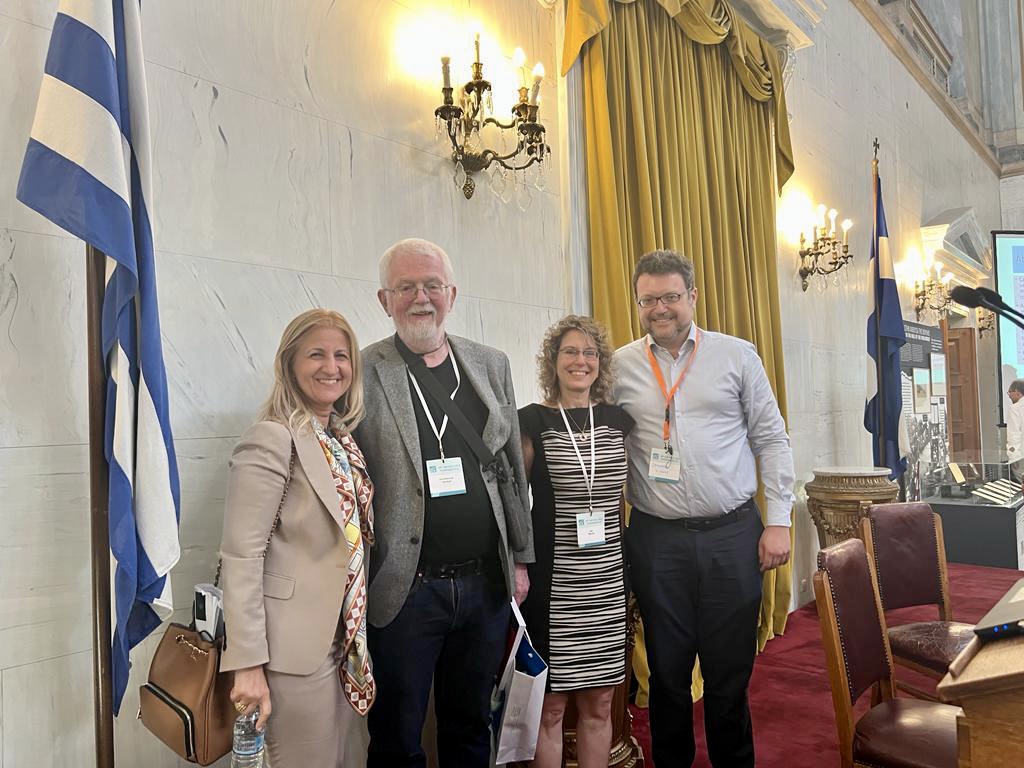
After the first round of panels, excitement spread among competition law fans, since this year’s keynote was going to be delivered by the one and only Dean of Antitrust, Herbert Hovenkamp. He gave a keynote on Markets and Gatekeepers, and singlehandedly met our high expectations. In keeping with the speaker, the venue was venerable and impressive. Analyzing the AICOA (American Innovation and Choice Online Act) and its’ gatekeeper approach he concluded that it’s basically bad law. For one, it targets an innovative sector with little sign for the usual harms of monopoly and prohibits a lot of competitively harmless behaviors. Instead of focusing on entire companies as gatekeepers, it would be preferable to align the gatekeeper designation with problematic product markets. On the other hand, it misses conduct of firms that are not designated as gatekeepers (i.e., offline sellers who are not included no matter what size). One message the EU competition academics certainly like to hear: US antitrust law could learn from EU law on abuse of dominance!
Still pending: Sustainability – yes or no?
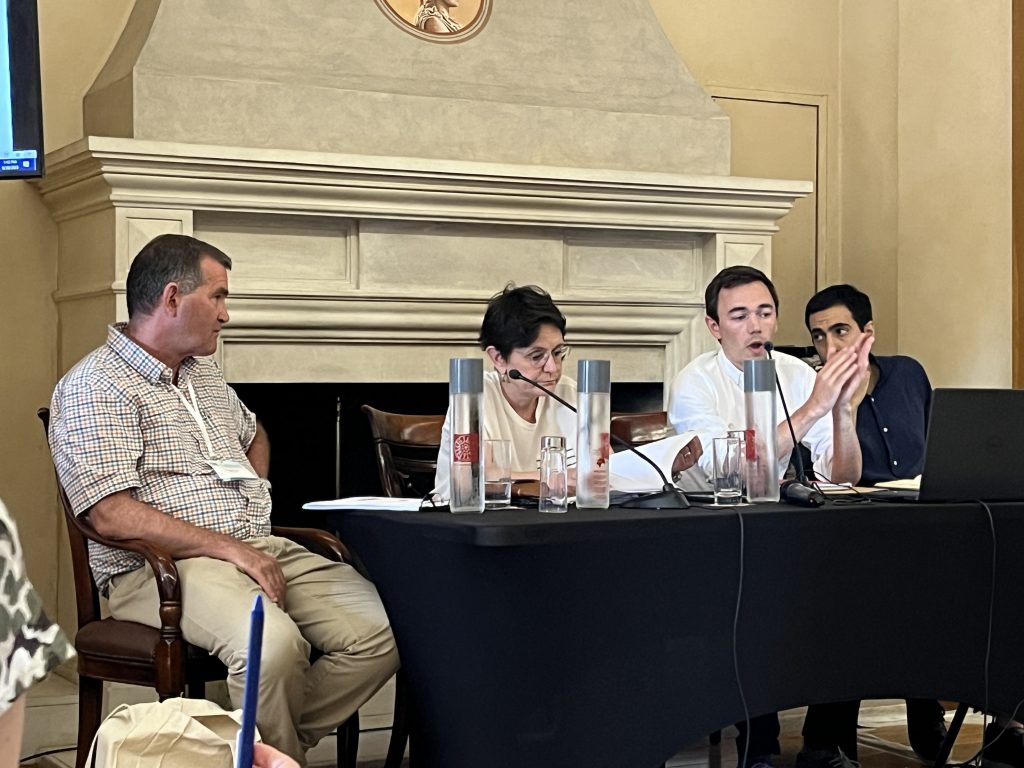
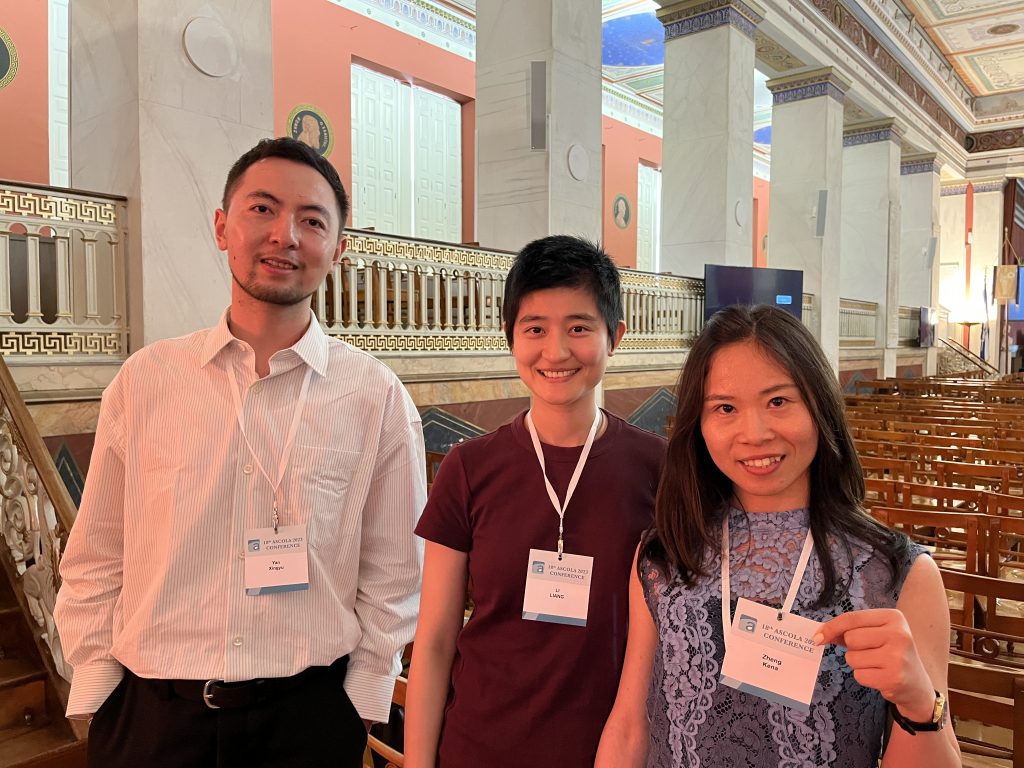
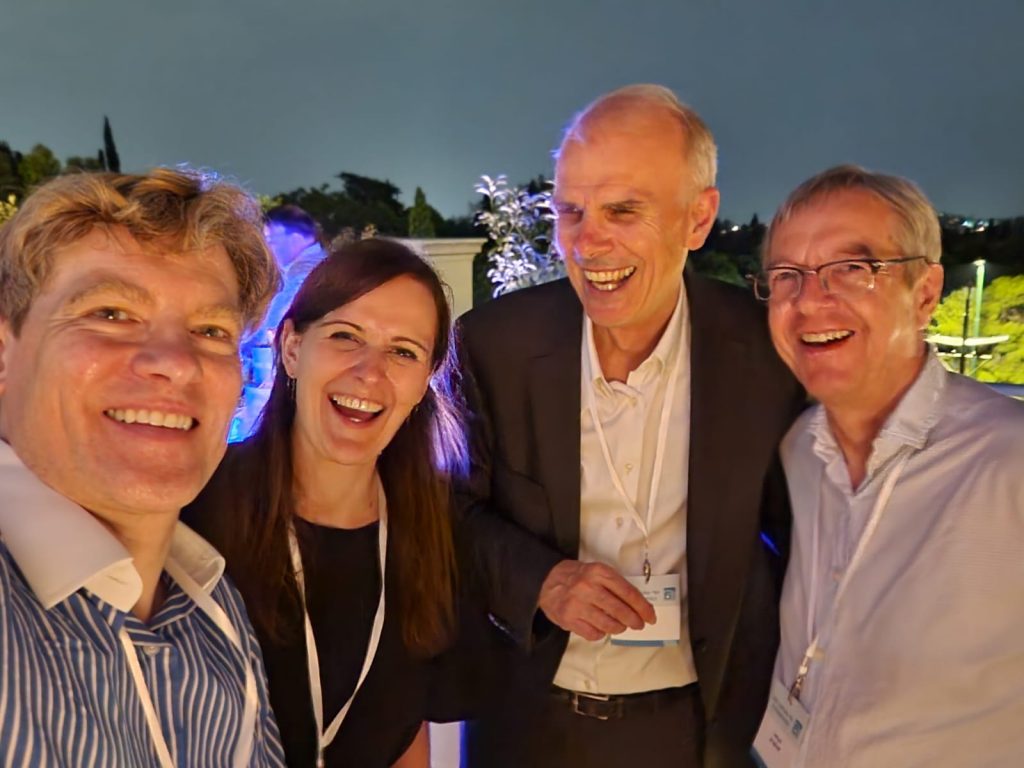
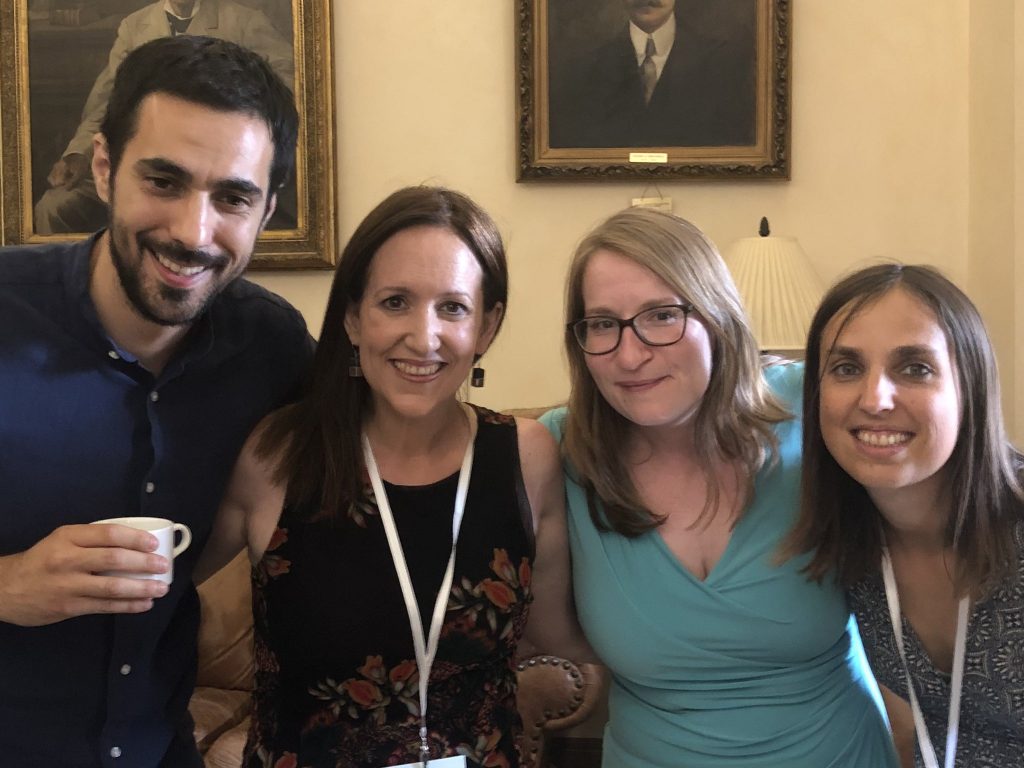
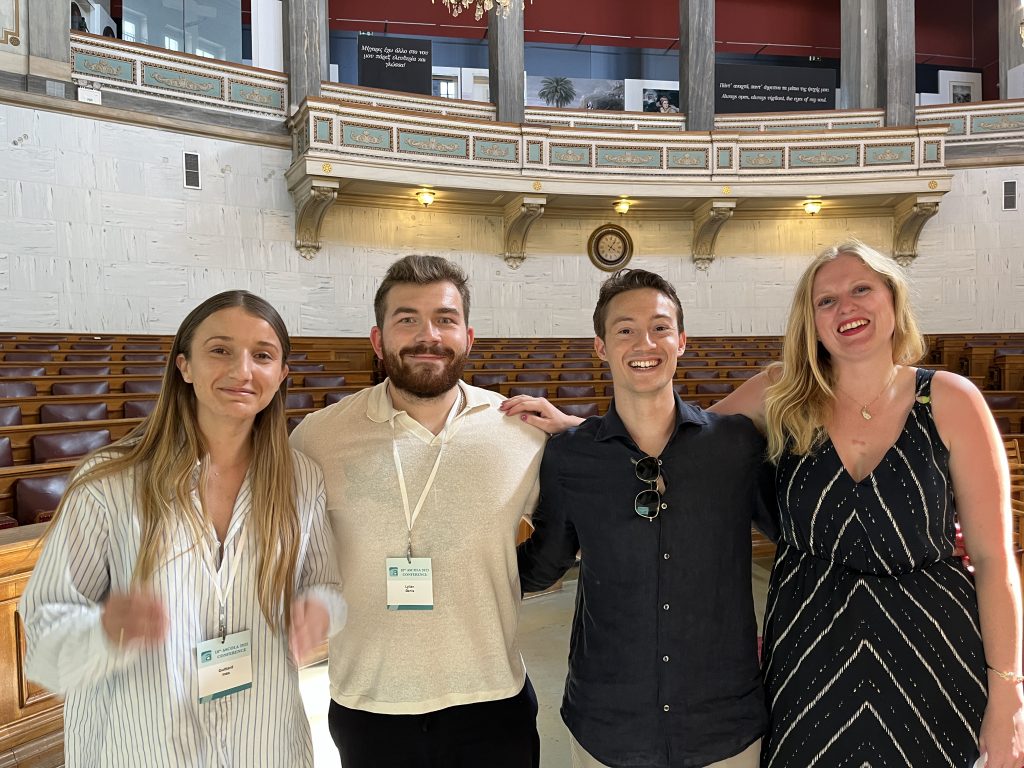
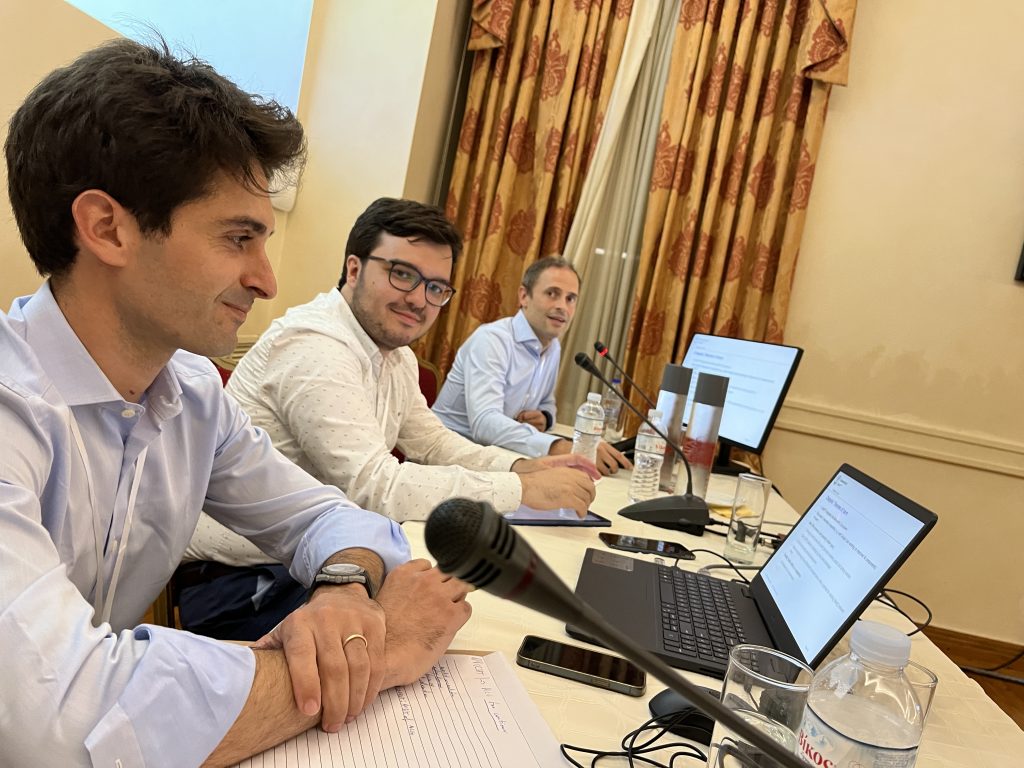
Lunch was followed by another pair of panel sessions. Particularly popular and crowded (we ran out of chairs) was the Competition Law and Sustainability panel with the prize-winning duo of Elias Deutscher and Stavros Makris, joined by Bruce Wardhaugh. To get ahead of myself: the award was very well deserved. But let’s start at the beginning: Competition Law scholars are still discussing intensely if and how sustainability aspects could be included into competition law as a non-competition goal (don’t want to intrude but: Competition Law is not an island and Art. 11 TFEU is there for us! And sorry for taking so long, Greta!)
Elias was the dominant speaker of the session since he started with one of his solo papers, to be followed by his co-presentation with Stavros. But don’t worry – Stavros and Bruce kept him from monopolizing his speaking time. Elias spoke on Competition Law and supply chain resilience and showed clearly how global supply chains are affected by outlining the creation of bottlenecks as an example. This was followed by his co-paper with Stavros on merger control and sustainability. They claimed that in certain markets price increases might be beneficial for the environment and hence have a positive effect on sustainability (e.g., fewer car sales). However, they did not argue this in a vacuum but also proposed concrete solutions (award-winning-qualities!) by suggesting a progressive model to assess whether sustainability goals are actually met (i.e., an error cost analysis and a standard of proof that requires a realistic prospect of sustainability benefits). Completing the session, Bruce provided an antithesis to the first two presentations by stating that in no situation competition law standards should be relaxed to meet sustainability goals. He concluded that regulation is a far better way than introducing non-competition goals into a competition law analysis.
State restrictions – underestimated?
Moving away from the goals of competition law – a panel covering State restrictions on Competition was a particularly refreshing way to end the academic Day 2. To quote Lena Hornkohl: “Only one panel on state restrictions?”
To counteract that thematic under-representation Lena gave an insightful presentation on the divergence of the Foreign Subsidy Regulation (FSR) and Art. 107 TFEU. Since there are still a lot of open questions (looking for a research topic, anyone?) about the new FSR, legal uncertainty is to be expected, Lena concluded.
Annika Stöhr followed with an economic perspective, presenting a project she is working on with Oliver Budzinski (who was dearly missed this year – he is an ASCOLA-safe bank – but Annika did a very good job representing TU Ilmenau). Their paper analyzes different kinds of potential distortions of competition through foreign states. Starting with the much appreciated (and often underestimated) question if there actually is any problem at all, they conclude that it is worth the research for sure! Looking forward to the final results (no pressure).
Jasper Sluijs followed and took a look at predatory pricing by state-owned enterprises. Working with different assumptions (e.g., that state-owned enterprises are characterized by higher marginal costs), he empirically researches whether state-owned-enterprises are more likely to price predatorily in a mixed duopoly market. To figure that out, Jasper and his co-author Florian Heine put students in a lab letting them manage a state-owned enterprise in a profit-maximizing way – they were paid based on the results. Great methodology! (Where can we sign up?)
Ascola General Assembly
First, the budget, Then some votes. Long live to the new ASCOLA board and executive team! What a wonderful contribution Queen President Michal Gal made to our community during her reign, making us bigger and better. The future is bright too, with, among others, Magali Eben, well-known as the co-chair of the UK chapter and, well-known too, new president Rupprecht Podszun. ASCOLA claims to be ‘THE place to showcase your work on competition law & policy’. It can rightfully do so, but only because many work tirelessly to make that a reality
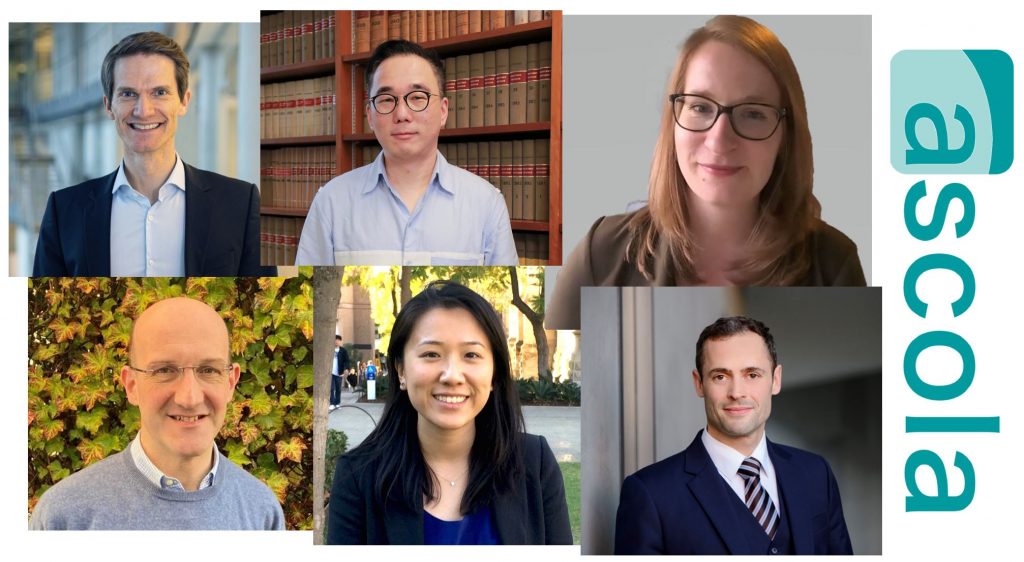
Greek taverns, temples, and traffic jam
The crowning finale of a long but wonderful day was our bus excursion along the Athens Riviera and a Greek Taverna Dinner by the sea with a view of the Sounion Temple. In front of this impressive scenery, the strains of the Athens rush hour-traffic jam were quickly forgotten. Another one dearly missing? Philip Marsden! We all would have loved to hear one of his infamous rap performances in front of a temple. But Florian Bien and Björn Christian Becker from Würzburg (next year’s hosts) already announced an ASCOLA-concert for 2024 – can’t wait for Philip to join and drop some lines! After all, Nas sampled Beethoven over 20 years ago. So let’s go: ‘I know I can … introduce non-competition goals into competition law’. Ok, ok, enough. *mic drop* Madlen out!
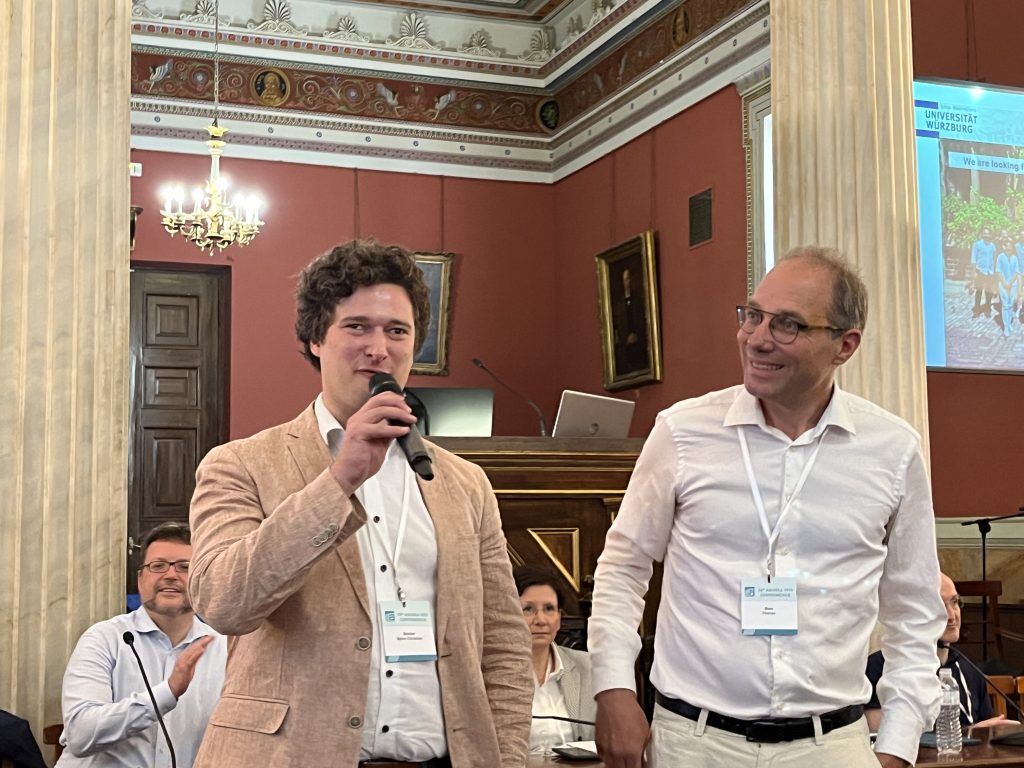

Day 3
✍️ Florence Thepot, Lecturer in Law (University of Strasbourg), ASCOLA third-timer
Last (and first) time I blogged, was during the London 2012 Olympics. I was fortunate enough to be a volunteer based in the Olympic Village. Yes, right in the middle of my PhD (don’t tell my supervisor). Athens 2023 is no different. Several disciplines, events, venues. Many nations represented (Utrecht as the team USA?). A superb atmosphere, impeccable organisation, and lovely volunteers. There was even a surprise lightening of the Olympic Flame during the opening ceremony. And it’s about competition. But as Pierre de Coubertin Paul Nihoul, said at the medal ceremony, “at ASCOLA, cooperation is greater than competition”.
9.15 am – Session 34 @ The Cinema (dark, comfy chairs, and cool)
Post night out for the bravest souls. Who was lucky to present? I certainly was! To my greatest surprise, my session was well-attended. Magali Eben, Dina Waked, Giorgio Monti, Marios Iacovides and various skills or jurisdictions were present in the audience. Topic: blurring the boundaries of the firm. Stuff at the interface between corporate law/ finance and antitrust.
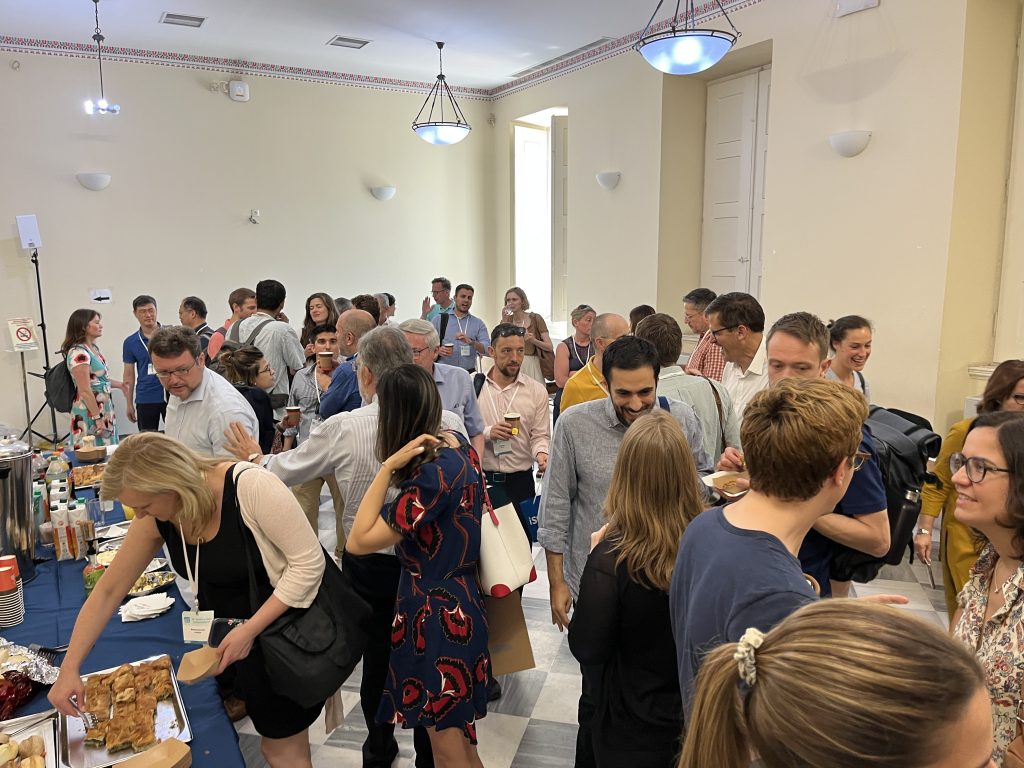
Vinicius Klein made us the gift of a case study: what happened following the (partial) privatisation process of the Brazilian steel sector in the 1990s? Post-privatisation: look at the ownership composition, and account for various financial & corporate links? You realise that the state’s influence is not gone, the sector is more concentrated and not open to new competitors. Lesson number 2: maximising asset values should not be the only focus (everyone, listen!).
Anna Tzanaki, the common ownership diva and also my corporate/antitrust soulmate, presented two papers. First, common ownership in the fintech market. Co-authored with José Azar, one of the famous ‘airline paper’ authors, and Liudmila Alekseeva. Interdisciplinarity at its best. Empirical evidence of extent and impact is provided and analysed. Strong theoretical legal and economic frameworks. I learned that common ownership is more of concern in publicly listed fintech companies than in start-up/private fintech companies. And that fintech M&A should be scrutinised with that in mind.
Anna’s second paper is on private equity, another ‘investors, beware – antitrust is watching’ area. A lot of political background provided (Lina Khan and Jonathan Kanter, you’ve been mentioned). Back to the law: should we (better) use antitrust tools? To remedy what? For whatever it’s useful, the US merger control regime is quite well-equipped (while also being reformed). And in the EU, we have this peculiar parental liability scheme – see the Goldman Sachs case – that may be used.
My turn then. Financial and corporate links – e.g., common ownership, interlocking directorates (not sure what it is? Please ask, or read) – between companies blur the boundaries of the firm, and may have an impact on competition. I know, we worry about a lot more things these days. Given that the concept of undertaking, underlying the application of EU competition law, is such an important premise, is there a blind spot? The US do things different (of course). Special announcement: interlocking directorates (my favourite topic) is sexy again in US enforcement! Best question and encounter: Teodora Groza, another competition law academic looking at the theory of the firm!
Plenary session/ Knowledge Production and Public Engagement: The Closing Ceremony
After a quick coffee/light lunch, now off to the grand finale. The most strategic among us knew where to sit to hear something in this magnificent auditorium (beauty being inversely proportionate to acoustics).
In our field, academics all know too well what’s wrong and what should be improved. We too all have ideas on how to change the world that is one fire. Or not. Competition law cannot do everything and let’s just go to the beach!
Now: how do ideas become policy, in practice? We couldn’t have hoped for a better panel: Joanna Mazur, Alexandre de Streel, Ioannis Lianos, Katerina Linos, and finally, Giorgio Monti (the panel’s ‘imposter’, in his own words…).
Who gets to influence policy? Joanna Mazur knows who (most of) you are…. you, experts quoted by the Commission in the various Google decisions (proper deduction skills, given that a lot is redacted). Her dataset enables her to analyse the functions of such sources. From ‘authoritative claims’ to ‘battle of the sources’. Important quality issues were also raised, such as the role of ‘commercial science’, internet-based data, and big tech induced sources (but, given they are at the heart of that data, that’s quite logical).
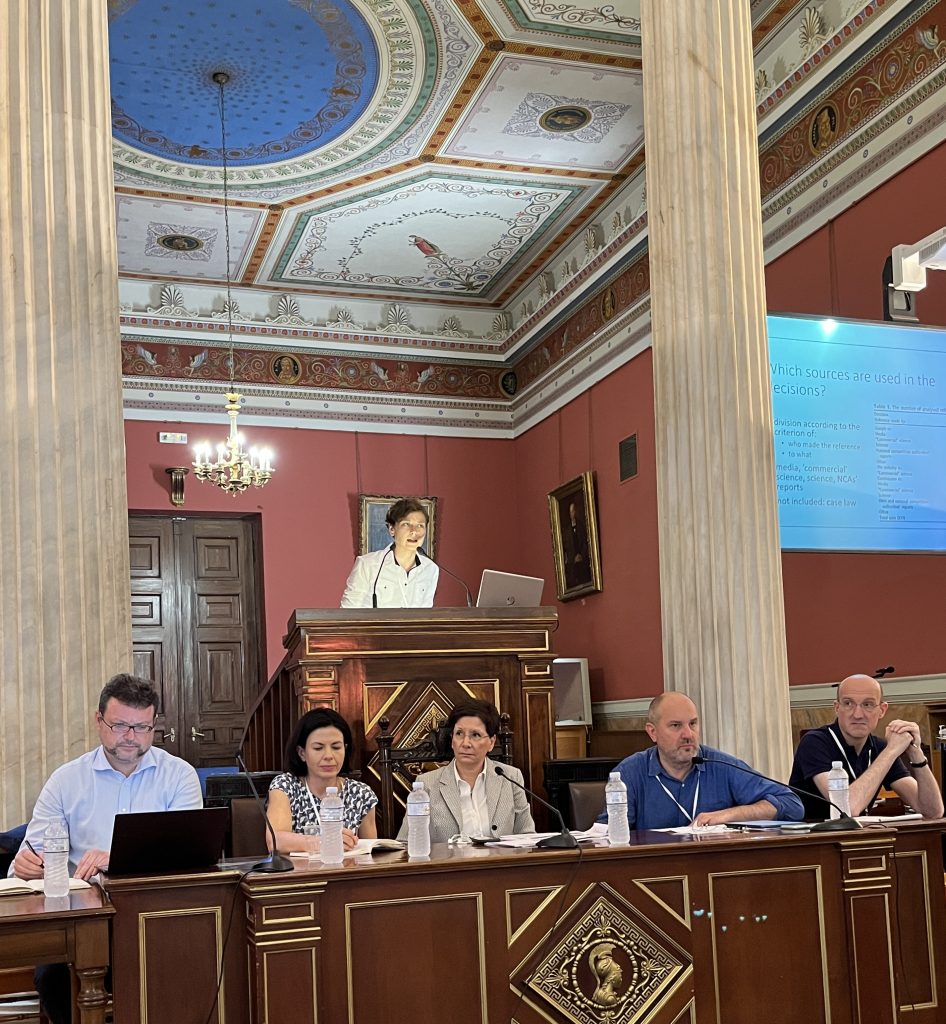
Alexandre de Streel, well positioned to advise on how to translate an idea into policy as a key advisor to the Commission in digital markets, had some very practical and inspiring tips for us. Two keywords: develop and deploy. Develop. Pick some good concepts/ideas. They must be concrete, stable, enforceable, and in line with some existing policy agenda of the institution (independence need not mean neutral). Then, deploy. Use the relevant channels – public consultations, conferences, informal contacts.
A good dataset is key to knowledge production, and Katarina Linos’ impressive work on antitrust policy diffusion is an example of that. For example, there are lots of data that can help understand the limits of competition policy effectiveness across the globe: domestic buy-in, competition agencies’ staff, whether competition policy is used for other goals. (I of course don’t want to hint whether the latter is a – or + for impact!)
What about the economists (not) in the room? (All at CRESSE 2023!)
Giorgio Monti said that there’s no such thing as lawyers and economists cross-fertilizing each other (Posner’s suggestion :)), even in our field. There’s limited amount of economics literature that lawyers see as legitimate – we see economists through a biased lens (and vice versa, right?). When willing to impact policy, one may be pragmatic – try to influence things within the scope of given premises, in the short run, as a policy entrepreneur. Unless we should aim for more? Why not be the Karl Polanyi in the room? (This rejoins a very good question Elettra Bietti put to the panel).
Ioannis Lianos knows quite a lot about economics (‘How it started’) and also knows quite a bit about enforcement (how it’s going: now the Hellenic Competition Commission’s Zeus). He exposed an impressive, complex and elegant framework to understand economic expertise, and its role in implementing the law. Economic expertise is a combined product of several ‘social groups’: academics-based, open-applied, and bound-applied researchers. Each with different degrees of material bias.
Then, who’s good at influencing policy? Alexandre de Streel sees big tech lobbying with the DMA as a disaster. Their slogan, ‘you’ll kill innovation’, may well work in the US, but not in the EU. Shall we ask Giorgio Monti? Anti-enforcement views are pushed more effectively. The playbook? Pretend you are pro-enforcement, then set the standard bar too high, and voilà, there’s no enforcement. But as he puts it, times are more exciting now than before in academia, precisely because of the disagreements.
From Athens 2023 to Würzburg 2024
This is now the end. Michal Gal wraps up, says thank you (and to you Michal!), a little birthday sing-along for our host Alexandra, and now the Olympic torch is…with Würzburg 2024!
Yet, the marathon didn’t end there. Off to a Greek taverna, a guided tour of the beautiful Acropolis (Museum). By the way. Any Brits in the room: PLEASE RETURN THE STOLEN SCULTPURES!
Nice walk in the Agora (Friso, yes, the Romans were here too!). A beautiful concert, some pitas, drinks and farewell…
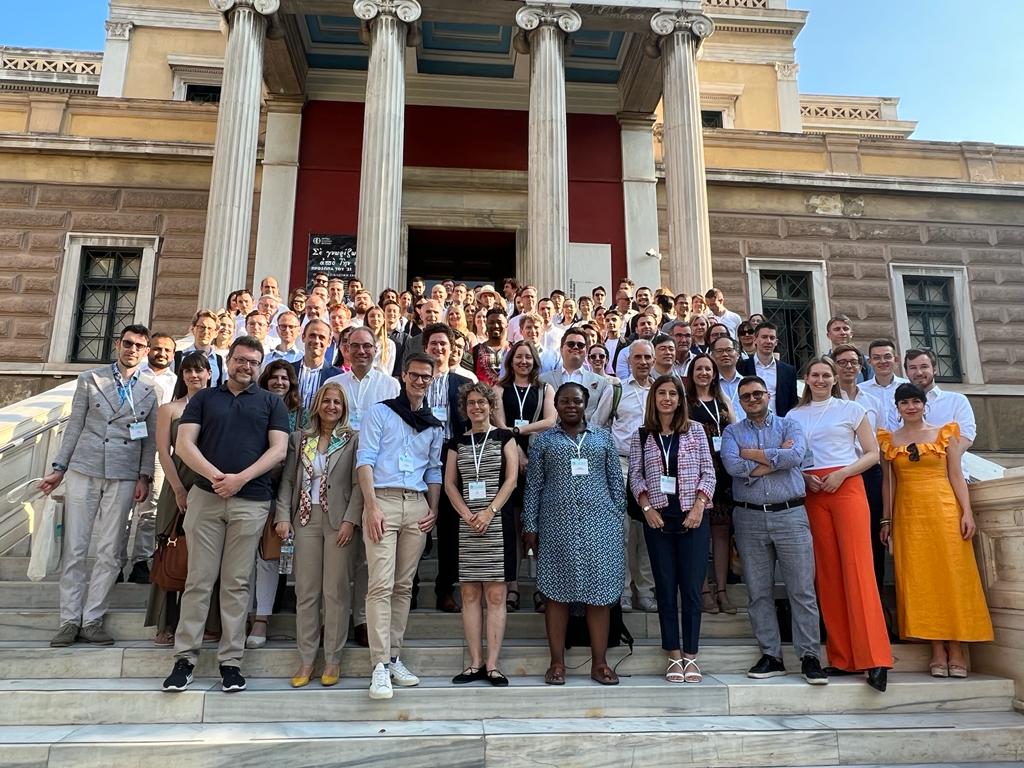
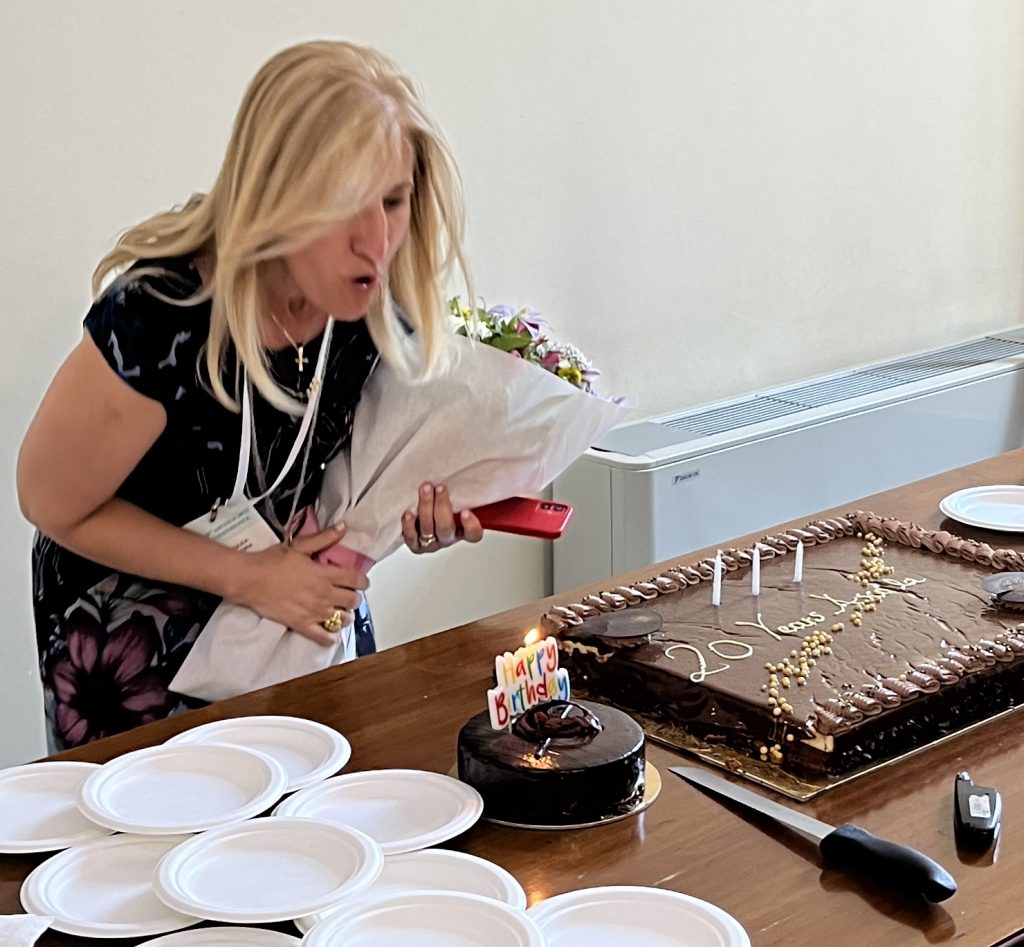

Ευχαριστώ and Bis bald!
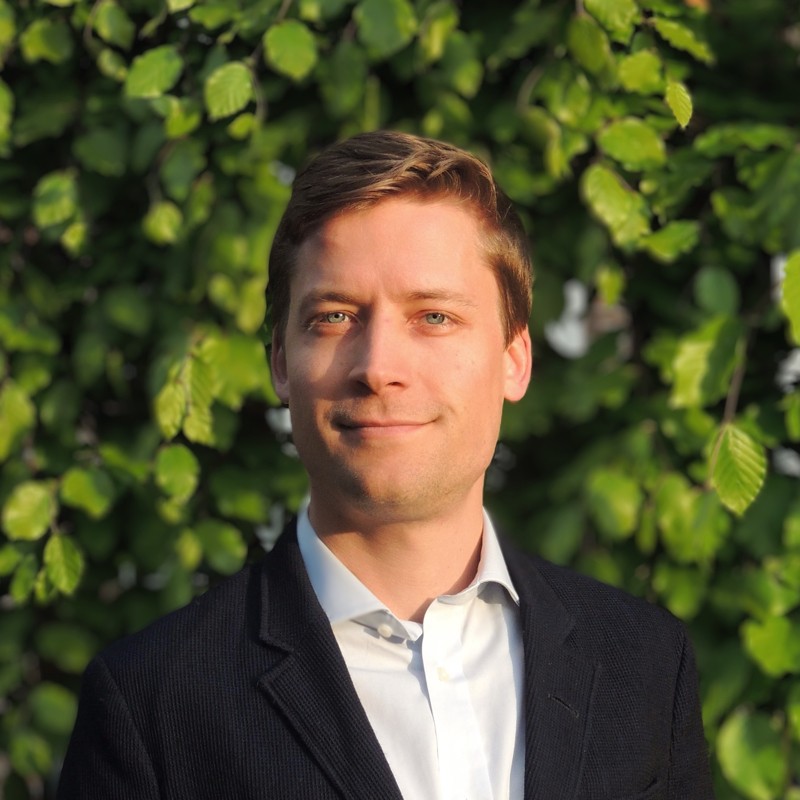
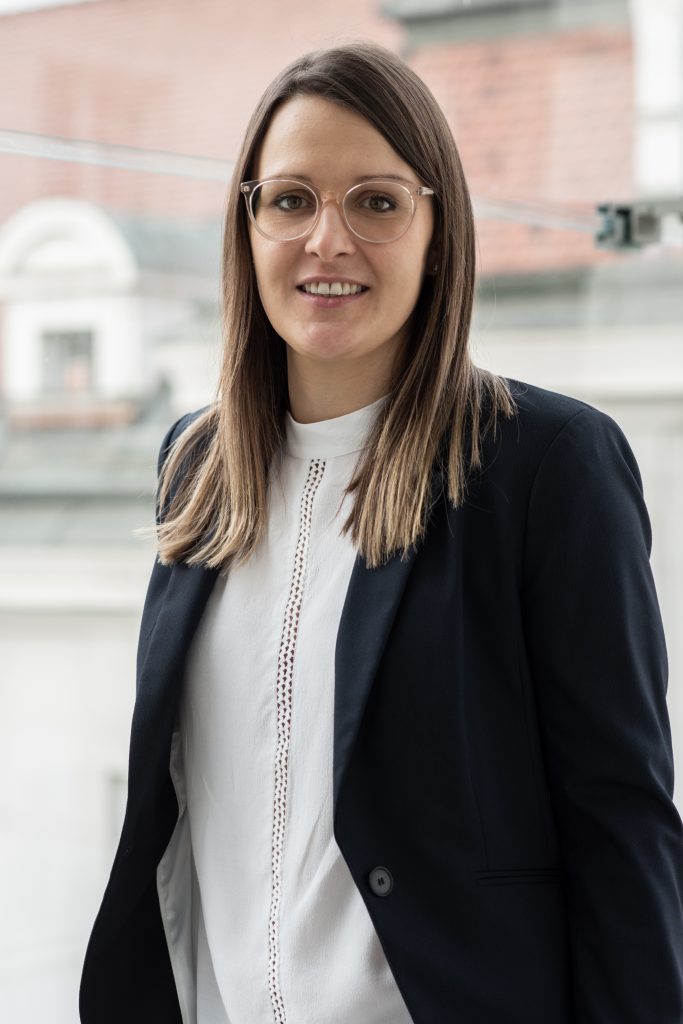
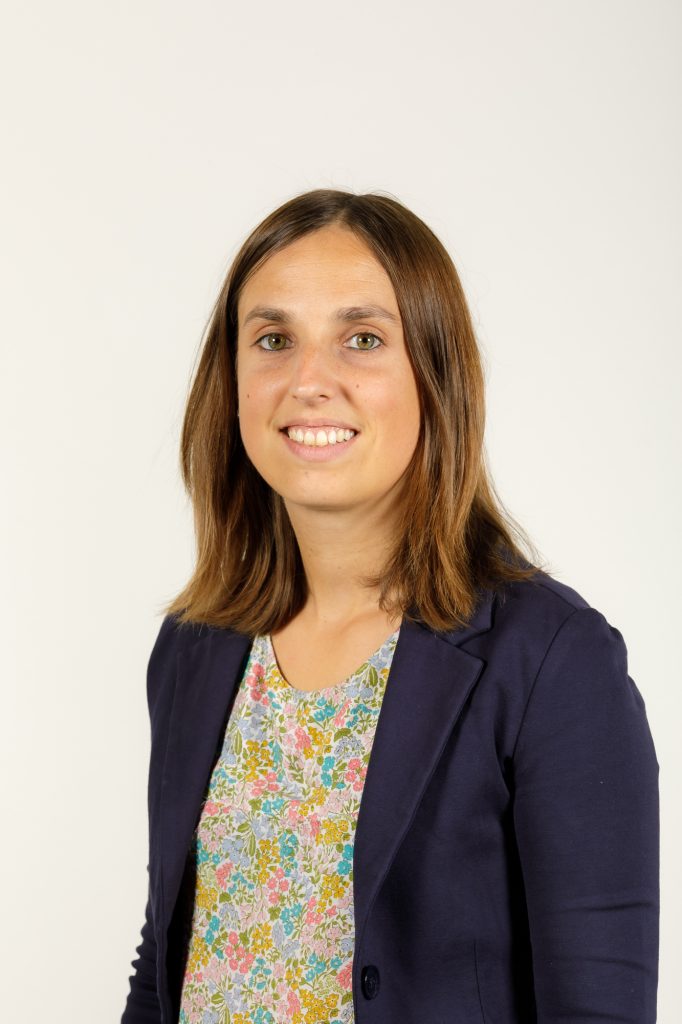
Friso Bostoen is an Assistant Professor at Tilburg University. Madlen Karg is a Research and Teaching Fellow at Technische Universität München. Florence Thepot is a Lecturer in Law at the University of Strasbourg.
2 thoughts on “Conference Debriefing (36): ASCOLA 2023”
ASCOLA in Athens 2023 – what a great conference and what a perfect place not only to share and discuss some new ideas but also to make new friends. Thank you, a lot, dear Alexandra, dear Ioannis and dear Manos, for the more than perfect organization! The excellent report (thanks!) perfectly reflects the wonderful atmosphere of the event.
Björn Chr. Becker and I are looking forward to welcoming you next year in Würzburg. Save the date, please: 4 – 6 July 2024 – and do not forget to prepare your piece of music and to bring your instrument.
We very much look forward to the Würzburg conference in 2024 & the first ASCOLA concert ever, Florian! Not sure what to anticipate with more excitement – the new sounds of 2024-antitrust scholarship or the insights of the BSO (Bien Symphony Orchestra) and BB King (BB stands for Björn Becker, obviously).